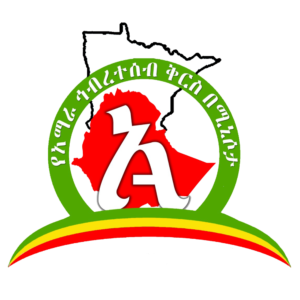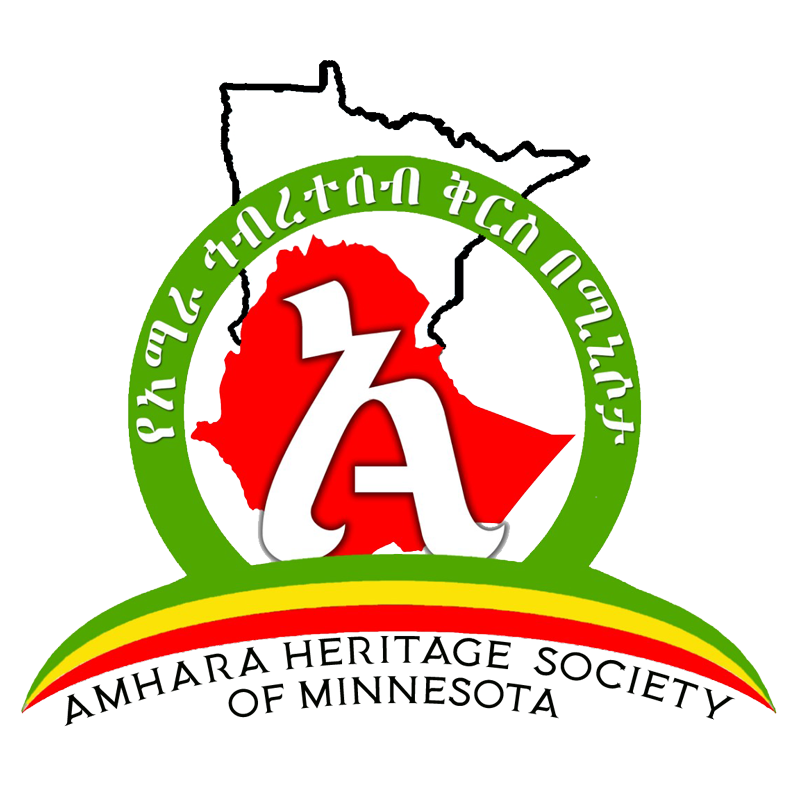Our Programs
Choose a program below to learn more:
The Media and Public Relations Officer
The Amhara Heritage Society of Minnesota’s (AHSM)’s Media and Public Relations Officer (MPRO) oversees all internal and external public relations, marketing and other communication related to the Association’s mission, activities and efforts following the organization’s medial public relation policy. Public Relations Officer is responsible for setting public relations goals, techniques, deadlines, budget and other operational considerations. Further, the officer focuses on the development, packaging and distribution of the Association’s messages. The detailed duties of the MPRO are listed in AHSM’s Bylaw 7.9 and might expand to additional services as the AHSM leadership sees necessary.
Technology and Mentorship Program
This program promotes the learning and mentoring initiatives that are focused on today’s technology that might benefit the Amhara society in Minnesota and beyond. As technology evolves, the Amhara people participations in science, engineering, math, and technology paradigms are crucial and cradle to our progress in this society. As the late Kofi Annan said, “Knowledge is power. Information is liberating. Education is the premise of progress, in every society, in every family.”
Therefore, our association is prepared and enthusiastic to provide the opportunities that address the need for technology and mentorship services among the Amhara ethnics’ of different age groups. Most importantly, the AHSM will work closely to bring the Amhara intellectuals into the discussion to contribute and devise short and long term plans so that our people obtain all the services from each professional paradigms. The duties in this program abide by the AHSM’s bylaw 7.14 and might expand to additional services as the AHSM leadership sees necessary.
Event Planning and Fundraising Coordinator Office (EPFCO)
As the name implies, nonprofit organizations do not make profit out of the services they provide to the community. The main source of their funding is through fundraising activities through which they accept donations and grants from their supporters or charitable organization to fund their projects. Therefore, nonprofit organizations should incorporate fundraising and development into their organizational strategy to become a high functioning, networked, sustainable, impactful organization.
The Amhara Heritage Society of Minnesota’s (AHSM) Event Planning and Fundraising Coordinator Office (EPFCO) is responsible for planning events and generating and coordinating financial resources for the organization through donations, grants, events and other means. The detailed duties of the EPFCO are listed in AHSM’s Bylaw 7.10 and might expand to additional services as the AHSM leadership sees necessary.
Volunteer Coordinator Office (VCO)
In recent years it has become clear that volunteers are of huge value to nonprofit organizations. As estimated by recent studies, about one hundred million people volunteer each year with an annual value in the range of $150 billion. Although raising money by soliciting donations from contributors and collecting membership fee from members is the standard way of funding a nonprofit organization, according to the saying “time is money,” in addition to monetary resources, these organizations will always need a few extra sets of hands to get things done. Not only do volunteers help save money, but they also provide better service to clients, increase contact with the greater community, make available better expertise, reduce costs of services, help with fundraising and administrative tasks, and help spread the word about the mission of the organization. Therefore, enlisting the help of volunteers and effectively managing it is a significant and complex task for nonprofit organizations.
The Amhara Heritage Society of Minnesota’s (AHSM) Volunteer Coordinator Office (VCO) is responsible for recruiting, implementing, maintaining, and evaluating an effective volunteer program on behalf of the Association. By working closely with program and project leaders, this office identifies the volunteer needs of the organization’s programs and projects and recruits potential volunteers that satisfies these needs either from members of the organization or from the general public. The detailed duties of the VCO are listed in AHSM’s Bylaw 7.8 and might expand to additional services as the AHSM leadership sees necessary.
Members Recruitment Office (MRO)
Members are the backbone of nonprofit organizations. Nonprofit organizations with membership programs can generate revenue through membership fees and donations in a return to which they can provide specialized perks and engagement opportunities for invested supporters making the relationship mutually beneficial. A membership program is one which asks people to contribute something – money, time, their presence, their names, certain actions – to the organization, in return for which they become somehow affiliated with it for a limited or unlimited period. Members may or may not receive products, privileges, or other advantages over non-members. Depending on the organization, members may have to meet some standard or hold specific credentials to join. Building a membership list large enough to yield a fair number of members, smoothing the process of contact and maintaining membership, and learning to manage and expand the list all take time.
The Amhara Heritage Society of Minnesota’s (AHSM) Members Recruitment Office (MRO) is responsible for recruiting members by verifying their qualification as stated in the organization’s Bylaw, maintain all records of member recruitment and conduct orientations regarding the mission and vision statements of the organization and the roles and responsivities of members. The MRO is also responsible for the development of strategies for member recruitment, identification of events and locations that are appropriate for member recruitment and establishing recruiting booths at appropriate events and observances. The detailed duties of the VCO are listed in AHSM’s Bylaw 7.11 and might expand to additional services as the AHSM leadership sees necessary.
Education, Art and Culture Office (EACO)
Cultural heritage is the legacy of intangible attributes of a group or society and its physical artefacts that are inherited from one generation to another and maintained in the present and bestowed for the benefit of future generations. Cultural heritage affirms the identity of a group of people or society because it creates a comprehensive framework for the preservation of cultural heritage including language, music, cultural sites, old buildings, oral traditions, performing arts, social practices, rituals, festive events, monuments, shrines, and landmarks. Whatever form or shape they take, these things are part of a heritage and the heritage requires active effort on our part to safeguard it.
The Amhara Heritage Society of Minnesota’s (AHSM) is an organization that is established to preserve, promote, advocate and share the valuable heritage of the Amhara people of Ethiopia. AHSM’s Education, Art and Culture Office (EACO) manages the Association’s education programs such as the Amharic lesson, Ge’ez lesson, Cooking lesson, traditional musical instruments lessons and other programs related to the Art and Culture of the Amhara people which includes gathering the Amhara people’s arts, costumes and artifacts and preparing and staging playwrights. The detailed duties of the EACO are listed in AHSM’s Bylaw 7.12 and might expand to additional services as the AHSM leadership sees necessary.
Health and Wellbeing Services Office
As we envision and stride towards a well-informed Amhara society in Minnesota and beyond, we find that good health and wellness shall be at the core of our goodwill mission. We came from a culture where health care is vertical where the health care provider channels orders and the consumer accepts commands. However, in the US we find ourselves in a collaborative care where different stake holders contribute towards the overall goal of health and wellness. The patient (society) has a central role where health is researched, learned and applied.
We will educate, inform and support our society here in the states about their health needs, rights and available resources and try our best to provide some of them, wherever they are accessible within our capacity and licensure requirements.
Equally important is our Amhara people in Ethiopia where health care disparity and lack of trust in the recent health care system is one of the highest. In part this was due to recent health related political issues that might hinder the society at large from seeking good care in an already existing health care infrastructure. We will play an advocacy and advisory role wherever necessary and we will actively look for health care related materials and resources from capable bodies so that we can distribute for those who need them.
We will rely on our Heritage of leadership and respect for all, and extend our vision in the long run that could encompass the whole country Ethiopia and the continent of Africa at large. The detailed duties of the Health and Wellbeing Services Office are listed in AHSM’s Bylaw 7.15 and might expand to additional services as the AHSM leadership sees necessary.
Financial Advising Office (FAO)
A significant portion of our community do not have the basic financial concepts that are required to lead a financially stable life. Starting from paying the monthly bills to buying a house, from saving a little money for the rainy days to saving for children’s college, people need to have basic financial skills to budget and manage their finance. Unfortunately, most of our community members do not have the educational background to read and understand this complicated subject on their own. Even those who have a 12+ schooling wouldn’t have these skills by default because the school system teaches finance and accounting, but not the importance of saving, how to keep your own budget, how to manage your own money, and how our tax system works.
The Amhara Heritage Society of Minnesota’s Financial Advising Office (FAO) will try to identify the financial knowledge gaps in our community and provide financial information and education in those areas by recruiting volunteer experts. The detailed duties of the FAO are listed in AHSM’s Bylaw 7.13 and might expand to additional services as the AHSM leadership sees necessary.


